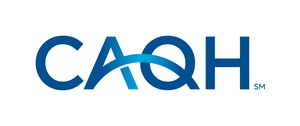
Universal Provider Datasource Establishes Benchmark for Provider Self-Reported Data Quality
Continuous Improvement Will Increase Accuracy of Healthcare Utility to 97% or More
WASHINGTON, Sept. 22 /PRNewswire/ -- CAQH® released the results of a landmark study to assess the quality and accuracy of data reported by providers about their professional credentials and practice information at its 2010 Administrative Simplification Conference. The study was conducted based on a thorough review of 108 data points that providers self-report to the Universal Provider Datasource® (UPD®), which electronically gathers provider data from all 50 states and the District of Columbia for credentialing and other uses, such as member directories.
CAQH commissioned FTI Consulting, Inc. to conduct the study. Researchers examined those data fields determined to be the most important to provider credentialing and directory maintenance by an industry work group. Responses were verified against publicly available information and by direct provider contact.
"UPD has simplified the labor intensive and costly provider data collection process for physicians nationwide," said Douglas E. Henley, M.D., FAAFP, executive vice president and chief executive officer, American Academy of Family Physicians. "Ongoing improvement in UPD data quality will result in increased overall value to the entire healthcare industry."
The results showed that the sampled UPD data was 93.9% accurate. Based on the study findings, CAQH has initiated an array of system edits, adjustments to data fields and respondent prompts to make instructions clearer for providers. These system refinements will improve UPD provider data quality: accuracy is expected to increase to 97% or more. This will strengthen the utility of UPD for enterprise-wide adoption by health plans, hospitals, healthcare delivery organizations, healthcare information exchanges, and state and federal governments.
Key findings include the following:
- Required fields were completed 99.9% of the time.
- Nearly 80% of errors clustered into five distinct categories, such as outdated practice location and hospital affiliation information.
- Addressing time-sensitive data fields, such as practice address or hospital affiliation, leads to a higher rate of accuracy for other data fields from the same provider due to system logic that prompts appropriate follow-up questions.
- Clarifying the information being requested in practice name data fields will result in higher overall accuracy.
"While we would all want to see 100% accuracy on the data that providers enter into the system, we know of no other data set that has independently verified the accuracy of its provider data and achieved these levels," said David S. Wichmann, executive vice president and president of operations, UnitedHealth Group and CAQH board chairman. "The UPD Data Quality Study represents an important step forward in how we as a community can begin to track the level of accuracy in the provider data we rely upon for credentialing, claims administration, member services and other aspects of healthcare administration."
A copy of the UPD Data Quality Report is available at http://caqh.org/UPDDQreport.php.
About Universal Provider Datasource
CAQH launched UPD to enable providers and other health professionals in all 50 states and the District of Columbia to submit required information for credentialing and other purposes. The online service is the industry standard for collecting provider data used in credentialing, claims administration, quality assurance, emergency response, member services and more. UPD simplifies the initial provider application and recredentialing processes. All data submitted by providers through the UPD service is maintained by CAQH in a state-of-the-art data center and can only be accessed by the registrant and authorized hospitals, health plans and other healthcare organizations. UPD is relied upon by more than 855,000 physicians and allied healthcare professionals across the United States.
UPD complements the direction being taken by the Medicaid Information Technology Architecture (MITA), which is being built to improve administrative processes for Medicaid programs. CAQH estimates that, to date, the UPD service has eliminated more than 2.5 million credentialing applications, reducing provider administrative costs by more than $99 million per year or more than 3.3 million hours. Visit www.caqh.org/ucd.php for more information.
About CAQH
CAQH, a nonprofit alliance of health plans and trade associations, serves as a catalyst for healthcare industry collaboration on initiatives that simplify and streamline healthcare administration. CAQH solutions help promote quality interactions between plans, providers and other stakeholders; reduce costs and frustrations associated with healthcare administration; facilitate administrative healthcare information exchange; and encourage administrative and clinical data integration. Visit www.caqh.org for more information.
SOURCE CAQH





Share this article